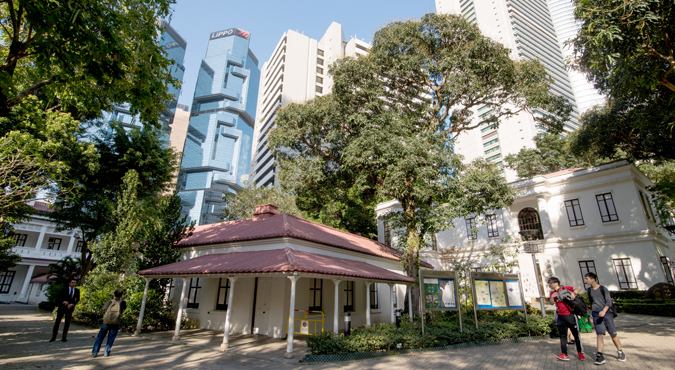The Letter of Offer is drawn up to indicate the tenant's initial offer upon a property, at this point the main terms of the lease are outlined from the more general commercial terms through to the agreed pre-move in decoration requests. Once both parties agree to the terms of the Letter of Offer, they are required to sign the document and the tenant will release to the landlord a holding deposit equal to one month's rent, as a sign of his good intent to take up a lease agreement on these conditions. The landlord will draw up his Tenancy Agreement form based on the terms of the Letter of Offer.
WARNING: Ensure that the Letter of Offer has the words "Subject to Offer" clearly stated at the top of the offer. Without this being included, should the negotiations fail and the formal Tenancy Agreement not be signed, the Letter of Offer could be argued to be a "binding offer letter" and effectively form a contractual obligation on the parties in absence of a formal lease.

When you have found a flat you want to make an offer on, your agent will prepare a "letter of offer" outlining the basic leasing terms between you and the landlord. This letter is simply an offer made subject to contract, and is typically not binding on anyone. Upon the landlord 's acceptance of the offer, a holding deposit equivalent to one month's rent is normally required. This deposit is used to reserve the apartment, and subsequently becomes the first month's rent payment upon the signing of the tenancy agreement. A holding deposit, in most cases, is refundable in full should either party for any reason decide not to go ahead with the signing of the formal tenancy agreement.
In some cases, a "binding offer" is signed. This allows the landlord to keep the holding deposit should the tenant decide not to proceed with the leasing of the premises. All contracts pertaining to the lease of the property need to be approved and agreed prior to releasing deposits.
Tenancy Agreement
The commencement date of a Tenancy Agreement typically is expected within two to six weeks after the Letter of Offer has been submitted. If the property is in 'move in condition' the landlord is likely to request an earlier start date. Clearly, any additional lead time the landlord will inevitably factor this into the rental somehow, so being active in the market long before you expected lease commencement may not prove advantageous to the lease negotiation.
Typically, the landlord will table the form for the Tenancy Agreement, but it is ultimately the tenant's responsibility to review the Tenancy Agreement prior to signing. Both the tenant and landlord must be satisfied with the terms of agreement before signing; the tenancy agreement is legally binding. The Tenancy Agreement engrossments are prepared in duplicate and a third person must witness the signing.
Both the tenant and the witness must provide their HKID number or copy of passport with their Signatures. The tenant will also need to provide;
- Business Card.
- Security Deposit.
- Occasionally, the landlord may request a Proof of Income Letter.
WARNING. If the property is subject to a mortgage, a Letter of Consent or otherwise known as a Bank Consent Letter from the mortgagor is necessary before finalizing the lease. This will protect the tenant from the risk of re-possession by the mortgagor if the landlord fails to fulfill the terms and obligations under the mortgage agreement.
Legal Fees
In most cases, the cost of preparation of the tenancy agreement by the landlord's solicitor is paid by the landlord. When separate solicitors are used, it is standard practice for each party to bear their own costs. The government regulates solicitors' fees for the preparation of tenancy agreements.
In fact, there is no requirement that tenancy agreements be prepared by solicitors. The agreement itself is quite standard. With the consent of both parties, and at no cost to either, Dwellworks will prepare the tenancy agreement and have the documents signed by the tenant and the landlord. In keeping with Hong Kong law, the document must be 'stamped" by the government. A copy of these legally binding lease agreements will then be given to each party.
Legal Assistance
Tel: 2522 8018
Provides useful taped legal information in English and Cantonese on over 65 topics, such as, divorce, tenancy, employment, the Small Claims Tribunal, etc.
Security Deposit
A security deposit is held by the landlord for the duration of the lease to ensure the due performance of the tenant. The amount is usually equivalent to two months' rent, and is payable upon the signing of the formal tenancy agreement. It is refunded to the tenant usually two weeks after the tenant has vacated the premises.
In some cases, a deposit equal to two months' management fees is also required. In the case of a personal lease, the landlord may request a security deposit equivalent to three months' rent. None of these deposits accrues interest payable to the tenant.

Rent
Rent - Government Rates and Management Fees The monthly rental amount is agreed to as part of the negotiation process. Unless specifically stated otherwise, rent is "exclusive" of building management fees and government rates.
Landlords usually request that rent payment be made via "autopay"—automatic direct debit paid directly into the landlord's bank account.
Management Fees
Management fees cover building maintenance costs, upkeep and landscaping of communal areas, security, daily household trash removal and amenities. The fee for each unit is dependent upon several factors, most importantly the age of the development, and the gross area of the particular flat. Facilities such as swimming pools, tennis courts and shuttle buses obviously inflate the management fee, but sometimes these Facilities are charged independently.
As a general guide, management fees are equal to 5-10% of the monthly rental. Most buildings are maintained by property management firms who, in turn, charge the owners. The amount is fairly stable over several years, but is subject to increases whenever the owners' committee determines this is warranted.
Government Rates
In Hong Kong, there are two types of rates: general rates and Urban Council rates, with both appearing on the same demand note. The proceeds from the first go to general government revenue, while the proceeds from the second go to the Urban Council to help finance the facilities that it provides. The amount is usually 5% of the annual rental amount, and as expected, is subject to revision by the Rating and Valuation Department. Rates are charged quarterly and payable in advance. There is a 5% surcharge if payment is late.
Stamp Duty
Stamp Duty is a tax that is applied to a lease. It is shared equally between the landlord and the tenant. The current rates depend on the length of the lease, and are as follows:
- One year or less, or if the term is unspecified: 0.25% of the total annual rental
- One year or more, but less than three years: 0.5% of the total annual rental.
- Three years or longer: 1% of the total annual rental.
Handover
Keys to the flat are normally given to the tenant the day the lease begins, and this is called the "hand-over." Sometimes keys are given to the tenant after the lease has
been signed, a few days before the commencement of the lease. Any problems or defects at the premises should be documented and reported to the landlord as soon
as possible. The importance of this cannot be overemphasized.
Handling Fees
The industry standard for agents' handling fees in Hong Kong, recommended by the Institute of Chartered Surveyors, is half of one month's rental.
Typically, monthly utility charges are paid directly by the tenant. Utilities include gas, electricity and telephone. Water consumption is billed quarterly and is also the responsibility of the tenant.
Some landlords insist that these accounts remain in their name. Deposits are required for utility connections. Arrangements for connection of utilities are generally the responsibility of the incoming tenant. We can arrange utilities to be connected for all our clients.

Early Termination
Should an early termination of your lease be required, the landlord's prior agreement must be obtained. The Tenancy Agreement is a legally contractual agreement and your non-performance of your duties could quite possibly be enforced in a court of law. There is no industry standard for penalties charged for early termination, as the landlord will typically hold the tenant liable for the full term of the contract up to the earliest possible termination date. If you stop paying your rent, the landlord may consider you in breach of your lease and this non-performance of your contractual obligations could quite possibly provide the landlord with a reason to try and forfeit your security deposit. The landlord might seek forfeiture of the security deposit over and above the rental sought for the contractual period of the lease. The landlord may also engage a solicitor to try and sue for damages (unpaid rent). There is no industry standard for penalties charged for early termination, as the landlord will typically hold the tenant liable for the full term of the contract up to the earliest possible termination date.
The notice to terminate your lease should be served in strict accordance with what is outlined in your Tenancy Agreement; this might include having to serve the notice by registered mail or in person, or only at the end of a calendar month. This will be clearly stipulated in your Tenancy Agreement.
While rarely required under the terms of the Tenancy Agreement (with the exception of the diplomatic break clause), in the event of a premature lease termination, you might consider stating the reason why early notice is being served and you want to exercise your break clause. Often any sympathy that might be generated even in this initial conversation may prove helpful when trying to negotiate any potential reinstatement decoration work, which might be required by the landlord.
Finding a replacement tenant prepared to pay the same or market price and take over your unit is often a possibility, but all of this is subject to mutual agreement by all the parties. Consult your Relocation Consultant for suggestions on how to best go about this.
Termination of your Agreement
Upon termination of your lease agreement clearly outline when you are expecting to deliver “vacant possession” of the premises to the landlord, i.e. when you will be physically vacating the property and passing the keys back. We also suggest you have a pre-marching out inspection to establish any possible reinstatement costs which the landlord may feel to be to your account. In going down this route, you might be able to negotiate with more leverage and possibly choose to have the mutually agreed work completed less expensively by your own handyman. If your property is under Corporate Property Management with Dwellworks Relocation your dedicated Tenancy Management executive will contact you to walk you through this process.
Please note that a “pre-marching out” inspection is typically required by the landlord before the official handing back of the premises. It usually requires about 30 minutes to walk-through the premises with the Landlord to identify if there is any reinstatement work he is expecting to be to your account – (that is over and above what is excepted under your “fair wear and tear” provision typically provided for in your lease agreement).
We would like to point out a number of typical defects found in the pre-marching out inspection and hand-back often required by landlords and will need to be individually negotiated:
- Remove pictures, hooks, nails and touch up the affected areas.
- Remove additionally installed curtain and curtain rails, and make good the holes with plaster of similar paint.
- Dismantle any additionally installed fixtures and fittings and reinstate the ceiling light fixtures with light bulbs.
- Dismantle all visible wiring and telephone sockets installed by the tenant.
- Carry out a general cleaning to the property before you leave.
- Clear any remaining food in the fridge and dispose of any garbage in the property, like carton boxes.
- A written acknowledgement by the landlord that the property has been returned in an acceptable condition avoids disputes over defects, which may subsequently be found later.
Pets
In some instances (especially in high-rise apartments), there may be terms in the House Rules restricting the keeping of dogs and cats. Tenants should check the House Rules, if there are any, to clarify this issue before signing the tenancy agreement.

A lease or tenancy agreement between the landlord and the tenant usually has a term of two years. Landlords usually grant a “break clause” option that allows the tenant, under carefully defined circumstances, to give the landlord an early notice of termination. Under a typical break clause, the tenant is permitted after one year to give a two or three month’s written notice of intent to the landlord to terminate the lease agreement without any penalty.
Another type of break clause that is becoming more popular with landlords is the “diplomatic” break clause. This differs from the standard break clause in that the tenant cannot give notice to terminate the agreement unless he is leaving the employment of his employer or relocating out of Hong Kong.

